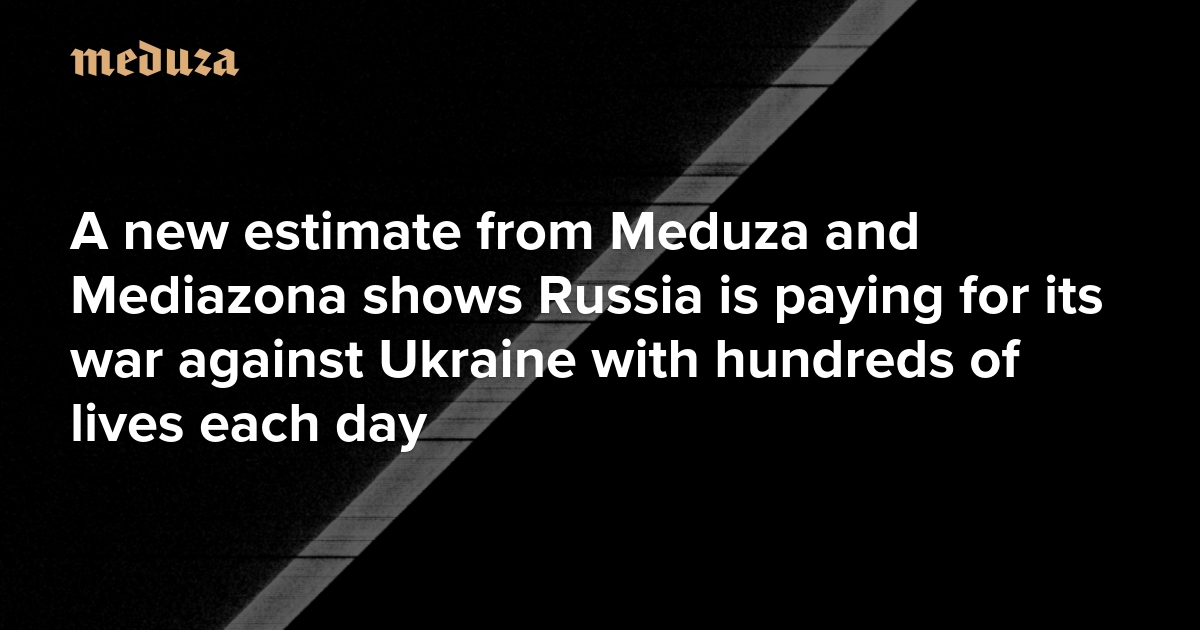Portrait of a Nation: How Ordinary Russians’ Lives Have Changed in 3 Years of War
… “Since the special military operation began, I no longer live my life but merely exist in this world. I lost my only son [in the war]. I have my daughters to care for, so I have to keep living and go to work,” said a middle-aged woman from the Mongolia-bordering republic of Tyva.
“My husband started drinking heavily after our son’s death, but he stopped after I once tried to take my own life. Of course, I haven’t told any of this to people around me — I just often cry quietly when no one is around,” she told The Moscow Times on condition of anonymity … “There are many funerals here, and there is much more drinking and aggressive behavior [from men] — that’s how people choose to express their pain and dissatisfaction,” said the Tyvan woman ,
“There is a deep and growing resentment toward the authorities,” a woman from the [Russian] Kursk region whose parents are missing in Kyiv-occupied territory told The Moscow Times. “We are asking for our loved ones to be evacuated from there. But we don’t understand why no one is making any effort to get them out,” she said ,
… “At tea gatherings [a social tradition among Indigenous Bashkirs], people discuss how many buses with coffins they saw arrive, whose sons were killed or taken to the front, recall how soldiers who came back for a short-term leave raped women in villages…There are many of these stories,” Altynay [a native of a village in Bashkortostan’s southeastern Baymak district who asked to be identified by a pseudonym] told The Moscow Times …
… In the Kremlin’s quest to promote “traditional values,” Russian authorities have intensified their crackdown on the LGBTQ+ community, outlawing it as “extremist” and pushing many queer spaces further underground or forcing them to shut down entirely. “A lot has changed since the war began,” a member of Moscow’s LGBTQ+ community told The Moscow Times. “Many clubs, especially gay clubs and sex parties, have either gone deeper into hiding — or disappeared altogether.” …
… The rising food prices might be the one impact of the war that almost every Russian has felt. “Food and fuel prices in our republic have always been higher than in neighboring regions, so I didn’t feel how much the prices have increased right away,” said the man from Tyva. “Six months into the war, I noticed the first sign [of inflation] — car parts became more expensive. Now the cost of everything…is five times more than pre-war,” he told The Moscow Times …
[Edit typo.]
This is irrelevant. Death of their fellow citizen is not of interest to russians (beyond polemics and fetishizing WW2). Stalin killed more russians than Hitler and yet most russians think his rule was justified.
10 million russians could be killed by their own government and the average russian would not care. They would never do anything about it, but million plus have, out of their own free will, joined a war of imperial conquest to kill, rape and torture.
A strong majority (if not an overwhelming majority) do not value human life. I am not saying there is anything inherent about russians that makes it so. They are fully capably of change, humanism, democratic governance, however, the choices they make clearly suggest they have no interest in such matters. And we have to take a sober attitude towards russians, treat them as they are and not as we think they are or how we want them to be.




